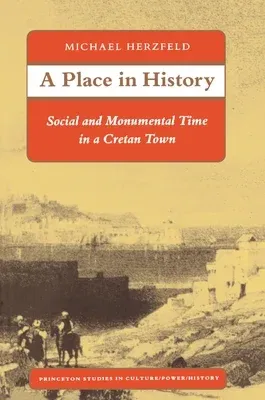Michael Herzfeld
(Author)A Place in History: Social and Monumental Time in a Cretan TownPaperback, 27 October 1991

Qty
1
Turbo
Ships in 2 - 3 days
In Stock
Free Delivery
Cash on Delivery
15 Days
Free Returns
Secure Checkout

Part of Series
Princeton Studies in Culture/Power/History
Part of Series
Princeton Studies in Culture/Power/History (Paperback)
Part of Series
Princeton Modern Greek Studies (Paperback)
Print Length
330 pages
Language
English
Publisher
Princeton University Press
Date Published
27 Oct 1991
ISBN-10
0691028559
ISBN-13
9780691028552
Description
Product Details
Author:
Book Format:
Paperback
Country of Origin:
US
Date Published:
27 October 1991
Dimensions:
23.42 x
15.49 x
1.83 cm
ISBN-10:
0691028559
ISBN-13:
9780691028552
Language:
English
Location:
Princeton
Pages:
330
Publisher:
Series:
Weight:
453.59 gm